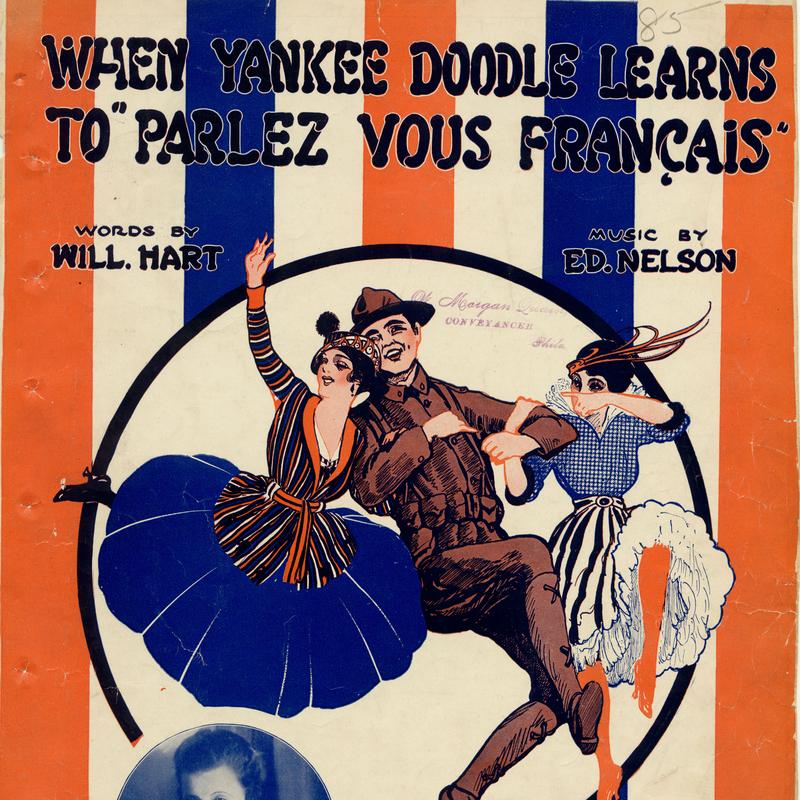BOB: The defensive posture expressed in the Patriot Act is not unique to the US. Last January’s deadly attack on Charlie Hebdo was met with an outpouring of international support, and reflexive calls from French politicians for legal measures to prevent future attacks. Within days, critics were warning that a “French Patriot Act” was near at hand. But this idea, plausible as it seemed, was roundly dismissed. A New York Times article published a week after the attack quoted French politicians and civil libertarians all citing the many failings of the US Patriot Act and demonstrating why France would never respond in such a manner. With 82% of French citizens rejecting the United States’s version of domestic surveillance...C’est impossible, they said. Well, turns out...Au contraire.
NEWS MONTAGE:
“Today, France’s parliament has passed its own intelligence act...”
“It’s been dubbed the French Patriot Act, that’s what critics are calling it at least..."
“France is moving ahead with a plan to tighten security by expanding surveillance. The French parliament passed a bill to increase the government’s ability spy on civilians without a court order...”
"It is a law that would enable a massive uptick of data, allowing the surveillance of many individuals, some of which have nothing to do with terrorism, organized crime, or spying."
BOB: Clémence Bectarte is a lawyer for the International Federation for Human Rights and a French citizen. She has been astonished by the speedy shift from “ridiculous” to “reality.”
Clémence Bectarte: We were very disappointed when we learned that this law was presented by the french government to the parliament because in the immediate aftermath of the Charlie Hebdo attacks, the official reactions were more confident in saying we need time to understand how this was possible. How 3 young men born on French soil, French citizens, were able in their 20s and 30s to perpetrate horrible terrorist acts in France. This is the true question that we have to answer now. And this was a positive signal from the French government in the immediate aftermath of the Charlie Hebdo attacks, but then, things changed and they decided to use fear that new terrorist attacks could happen, to pass this law. This is very disappointing.
BOB: It's one thing in a period of panic for politicians and those in the security apparatus to overreact, to overreach, with security measures. But you have suggested that this law merely makes official security programs that have either been underway or have been in preparation long before Charlie Hebdo.
Clémence Bectarte: Yeah we're convinced of this. Two years ago there were media revelations from two important French newspapers that the French intelligence services already had a program which enabled them to implement surveillance measures including massive interception of data from French citizens. The French government strongly denied the existence of this program, but then when they came out with this law two months ago, they admitted that in fact this program already existed and that the purpose of this law was to legalize what is already being used but without any legal basis or any legal framework. So we think that the French government used the fear of the post-Charlie Hebdo attacks to take out a piece of legislation from the desk drawers and to present it to the French parliament, saying this is the most reasonable way to prevent any terrorist attacks from taking place in the future.
BOB: Now there's one thing I want to clarify. It is not as though, before January, France was a -- here's another one -- laissez-faire society that just allowed terrorists to run around willy-nilly. There was a pretty significant existing body of law giving the government fairly broad powers before the terrorist attack.
Clémence Bectarte: Yeah. France was one of the first democratic states to enact specific legislation at the end of the 80s, when France was under the pressure of attacks coming from terrorist groups in Algeria. France was very proud of its legislation. The Wikileaks, for example, cables have shown that a very famous anti-terrorist judge in France regularly came to the U.S. embassy in Paris to boast about the merits of legislation that he could use in his everyday work as anti-terrorist judge.
BOB: Lets talk about the political context for all of this that makes it perhaps more surprising. And that is, you don't have a right wing president. Your president isn't Marine Le Pen and it isn't even George W. Bush, it's Francois Hollande who is a socialist! How did that happen?
Clémence Bectarte: It's true that we would have more expected such piece of legislation coming out from the Sarkozy administration than from the Hollande administration. But on these considerations, there seems to be a political unanimity in France saying that security is more important the the respect of individual liberties and freedoms.
BOB: Is this an unstoppable course of action?
Clémence Bectarte: Well, the fact that there are a lot of critics in France to this text will contribute to a true debate. We know that there have already been amendments but it remains largely insufficient for us. Given the opposition to this text by civil society groups and others in France, the president, Francois Hollande, has announced recently that he would submit this piece of legislation to the control of the constitutional court to see whether this text is in conformity with the constitution, and in particular, the provisions concerning freedom of expression, right to privacy, and individual liberties as a whole.
BOB: Clémence, thank you so much.
Clémence Bectarte: You're welcome, thank you.
BOB: Clémence Bectarte is a lawyer for the International Federation for Human Rights.


